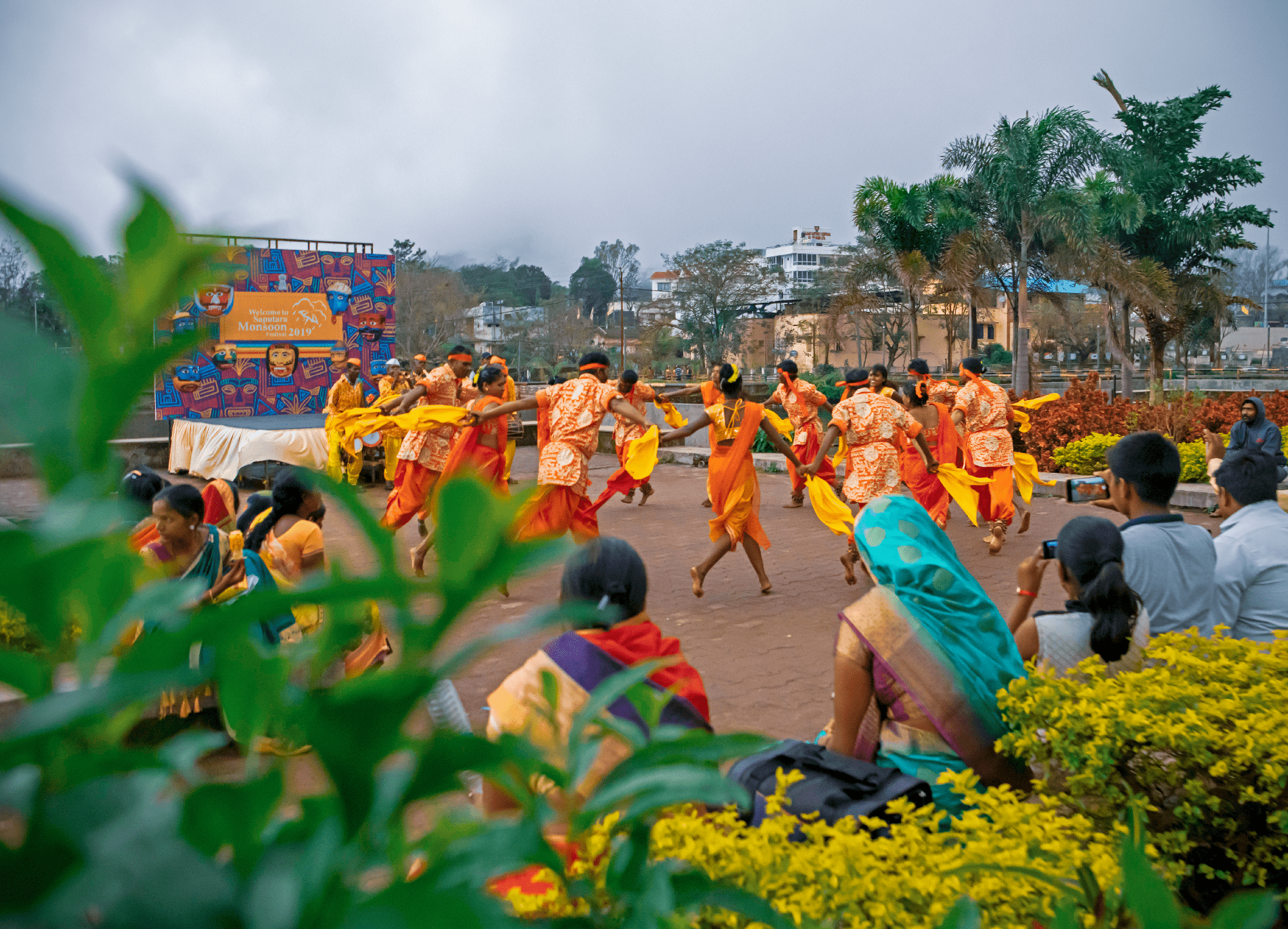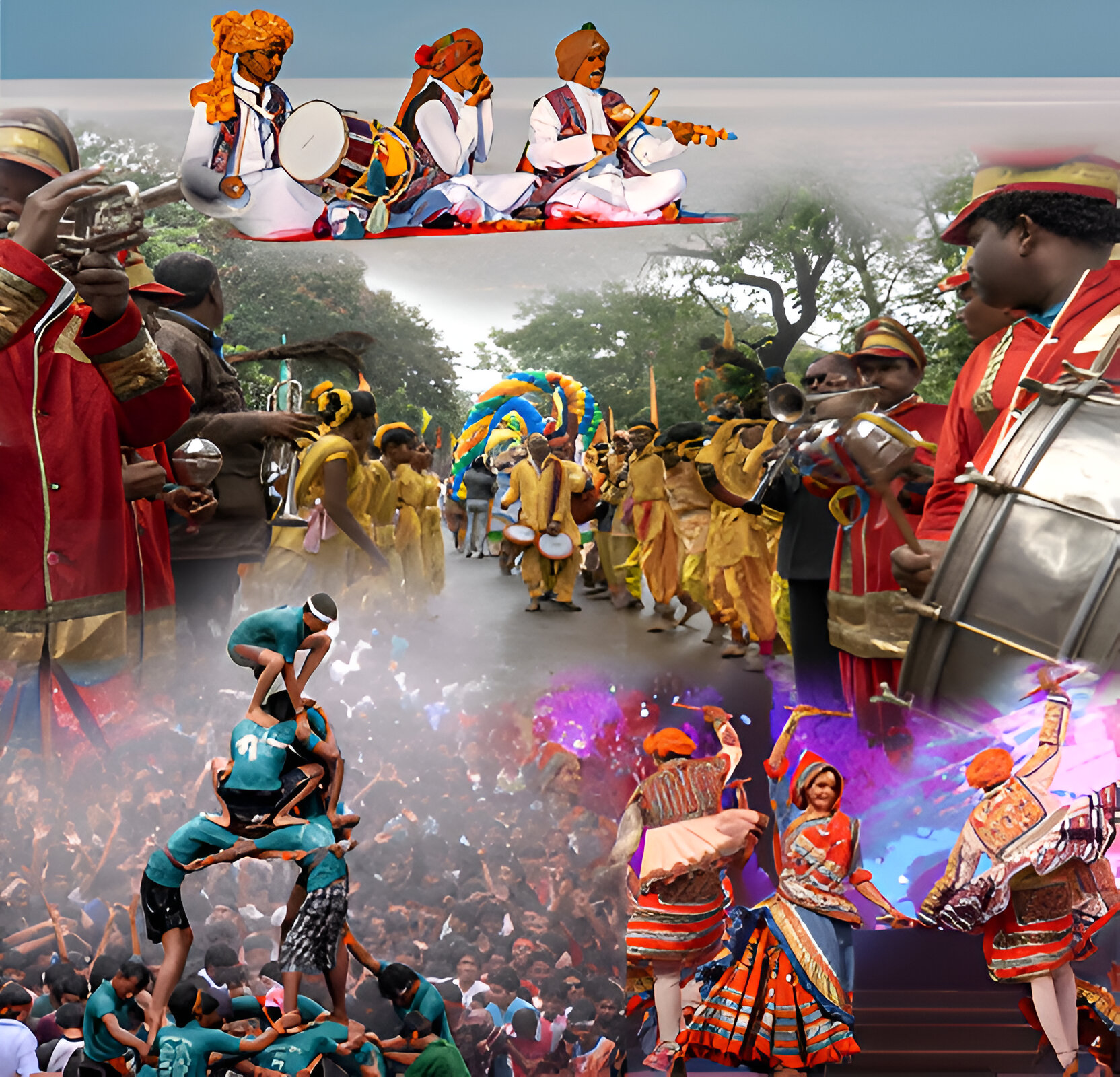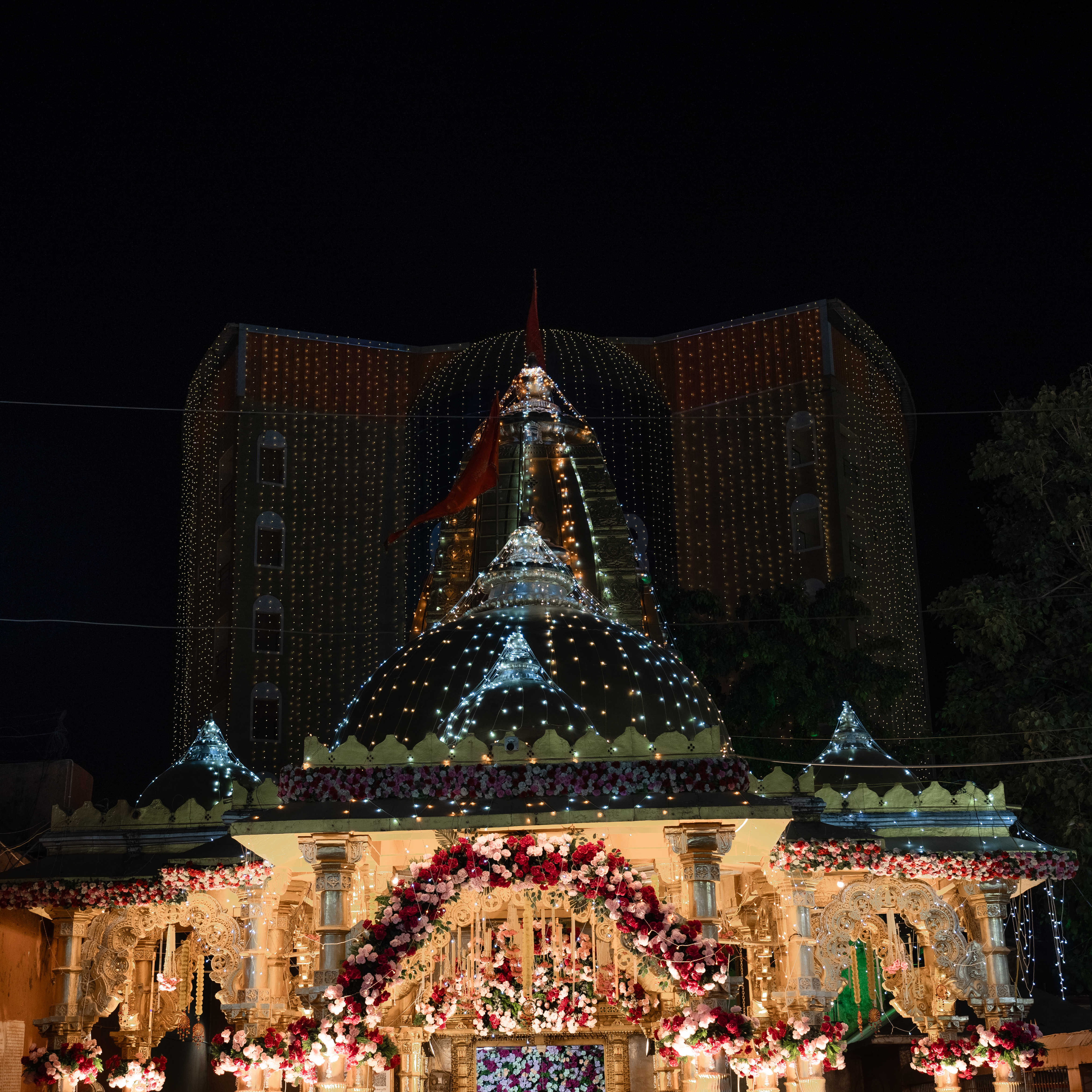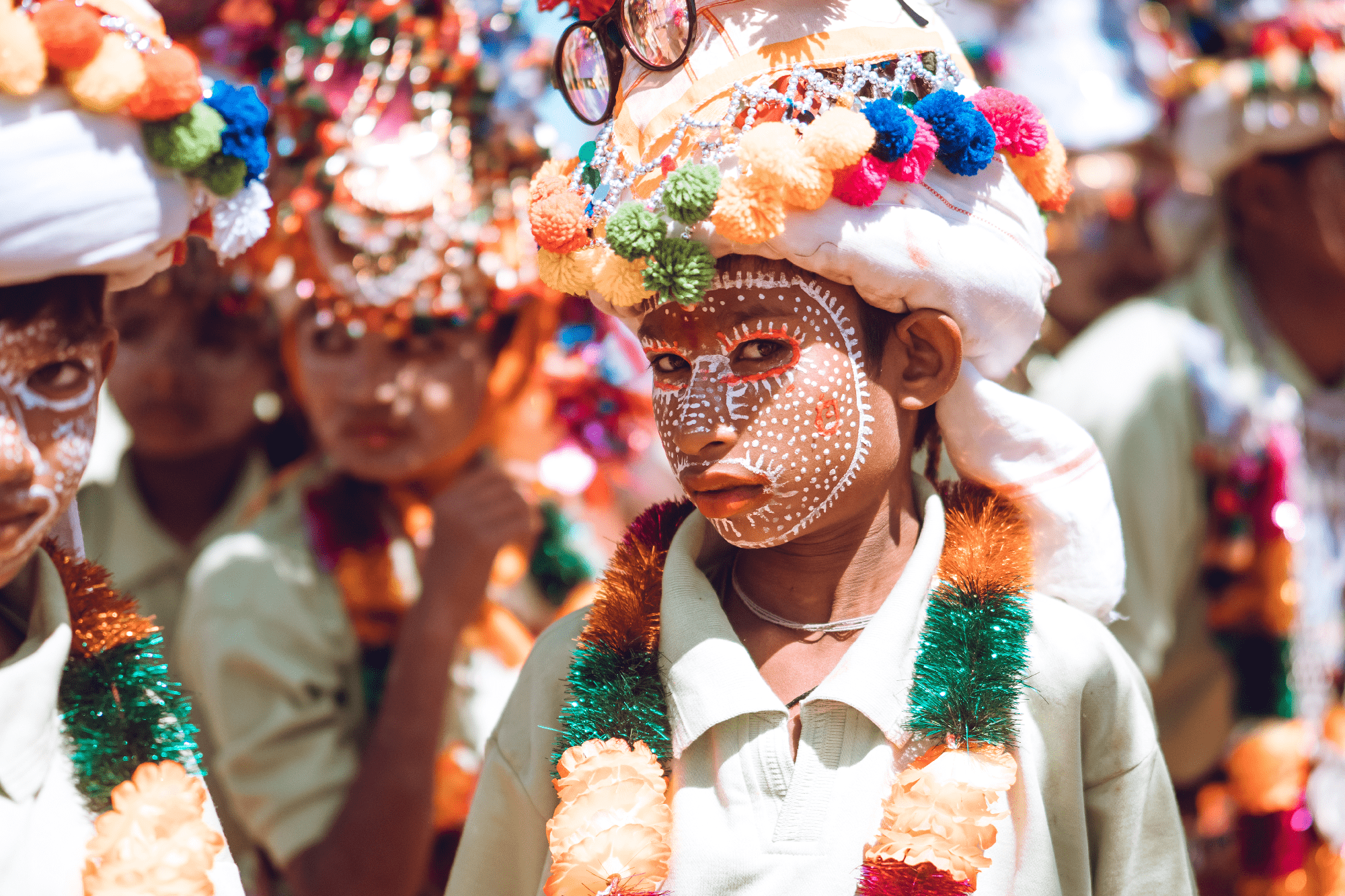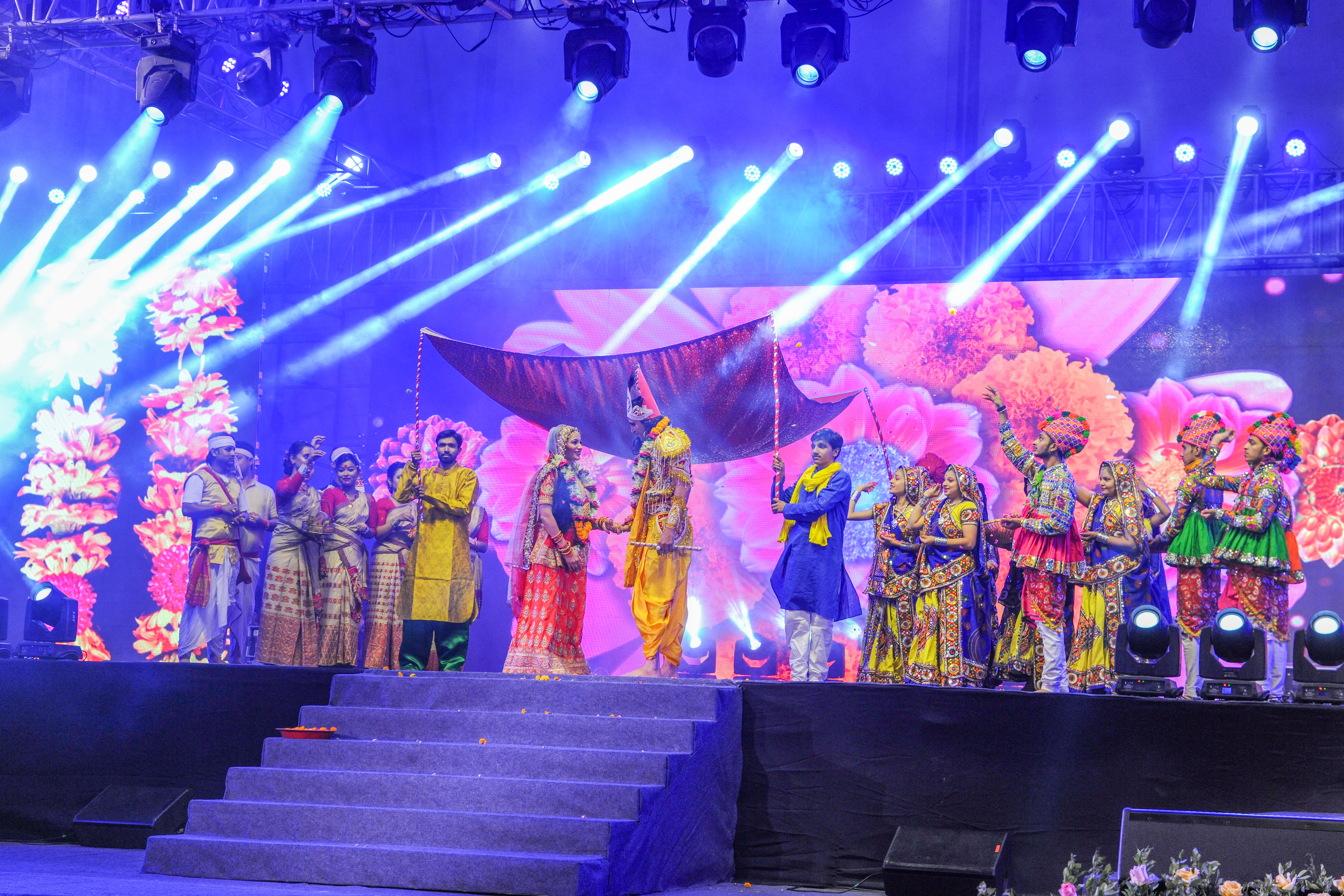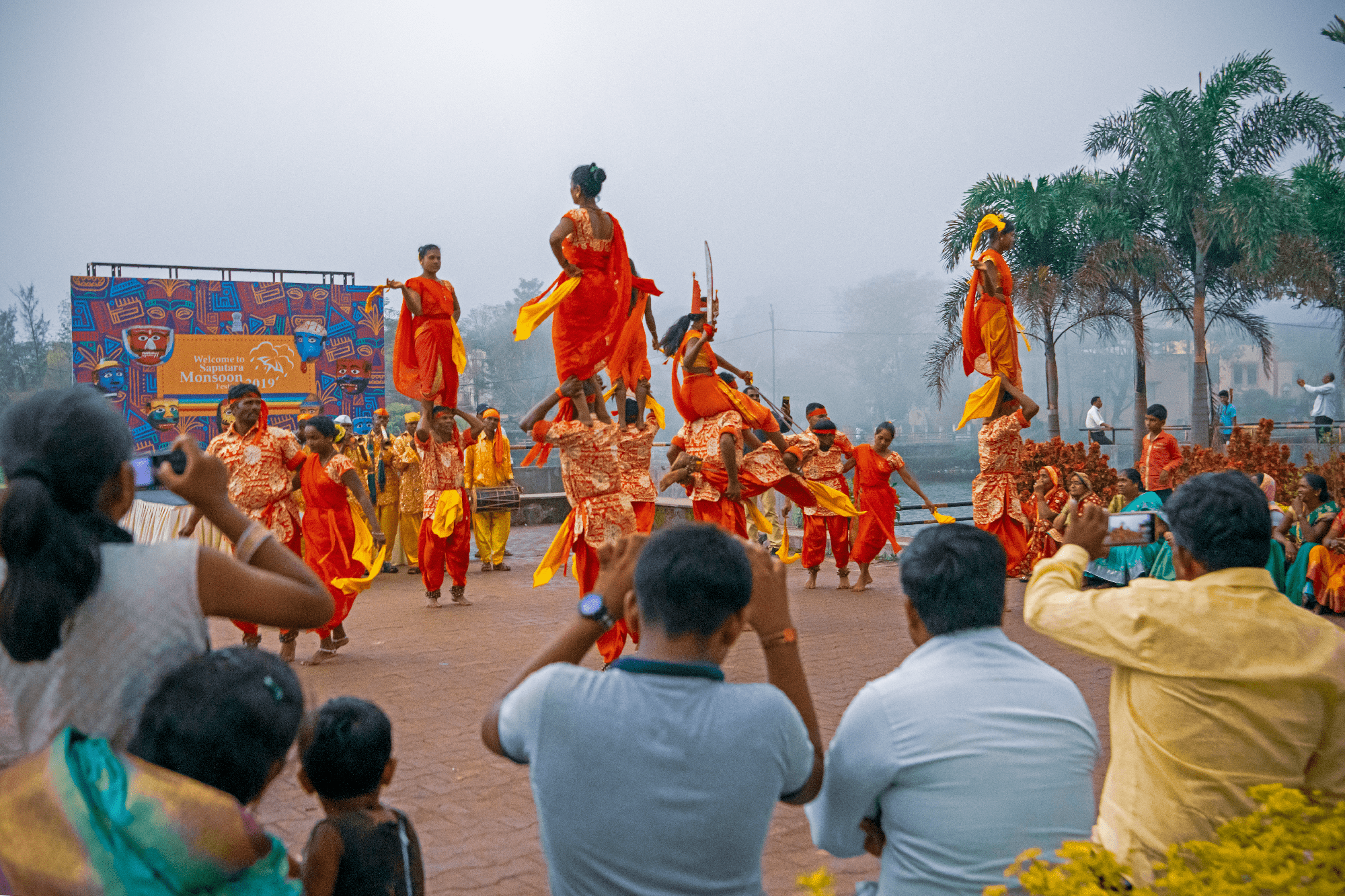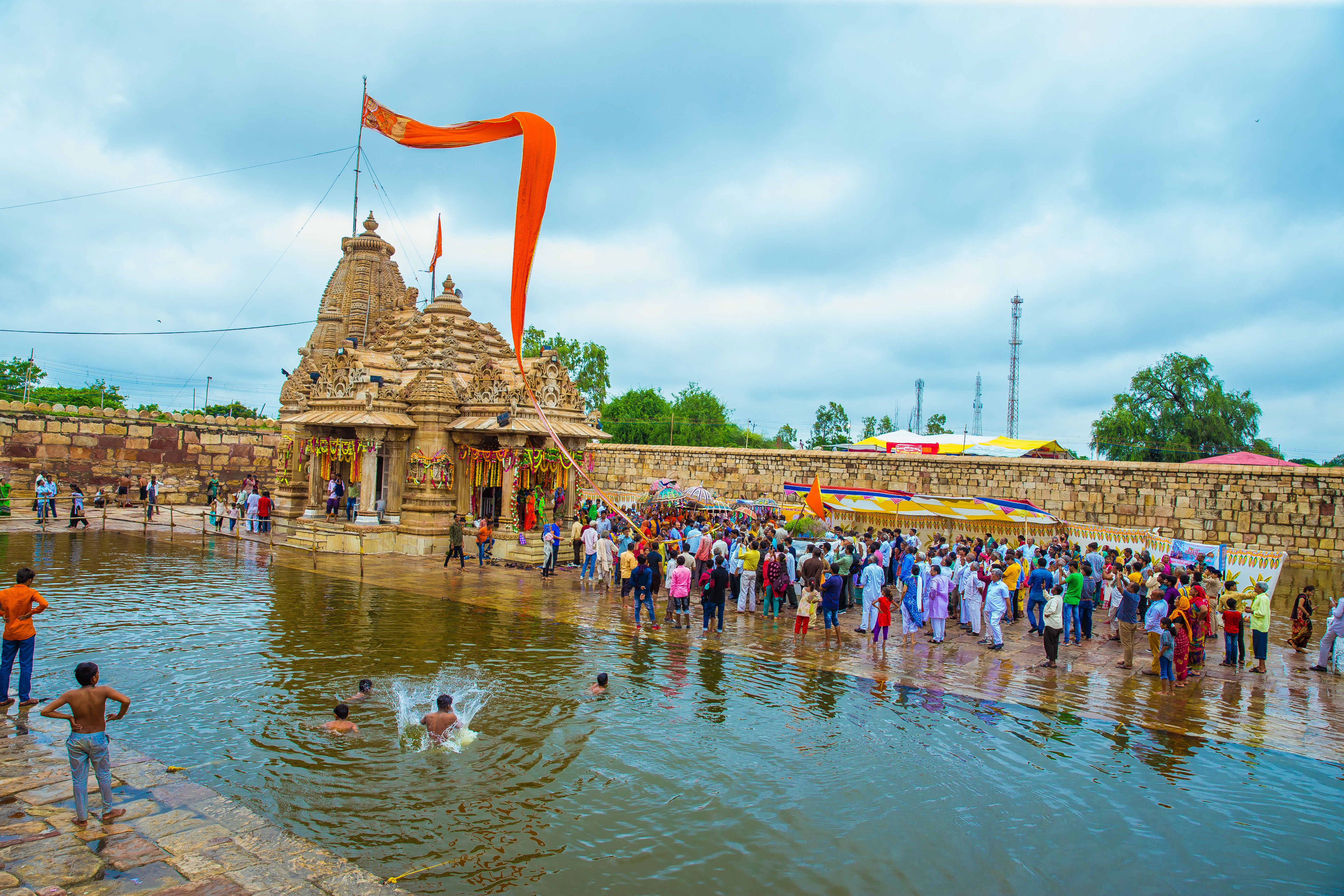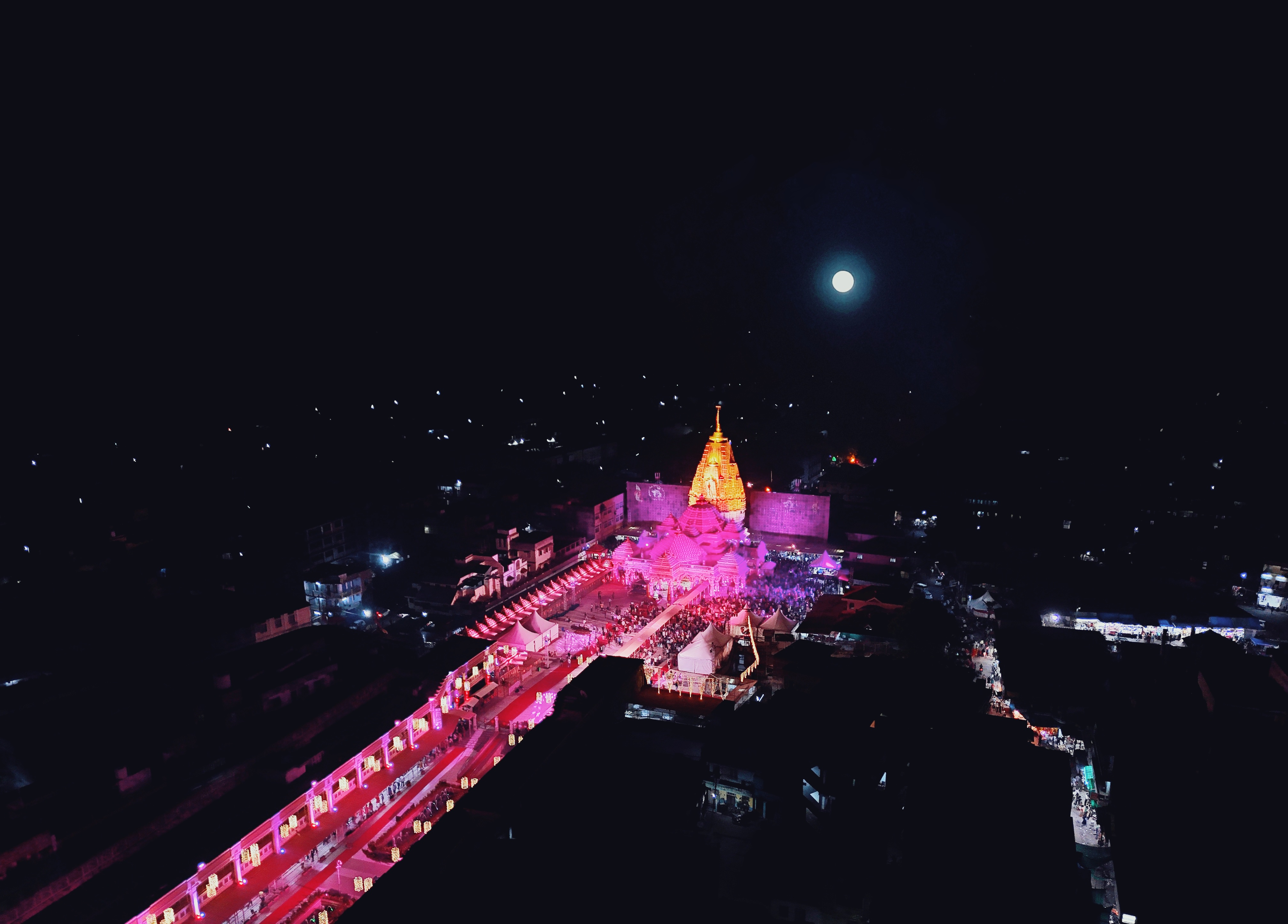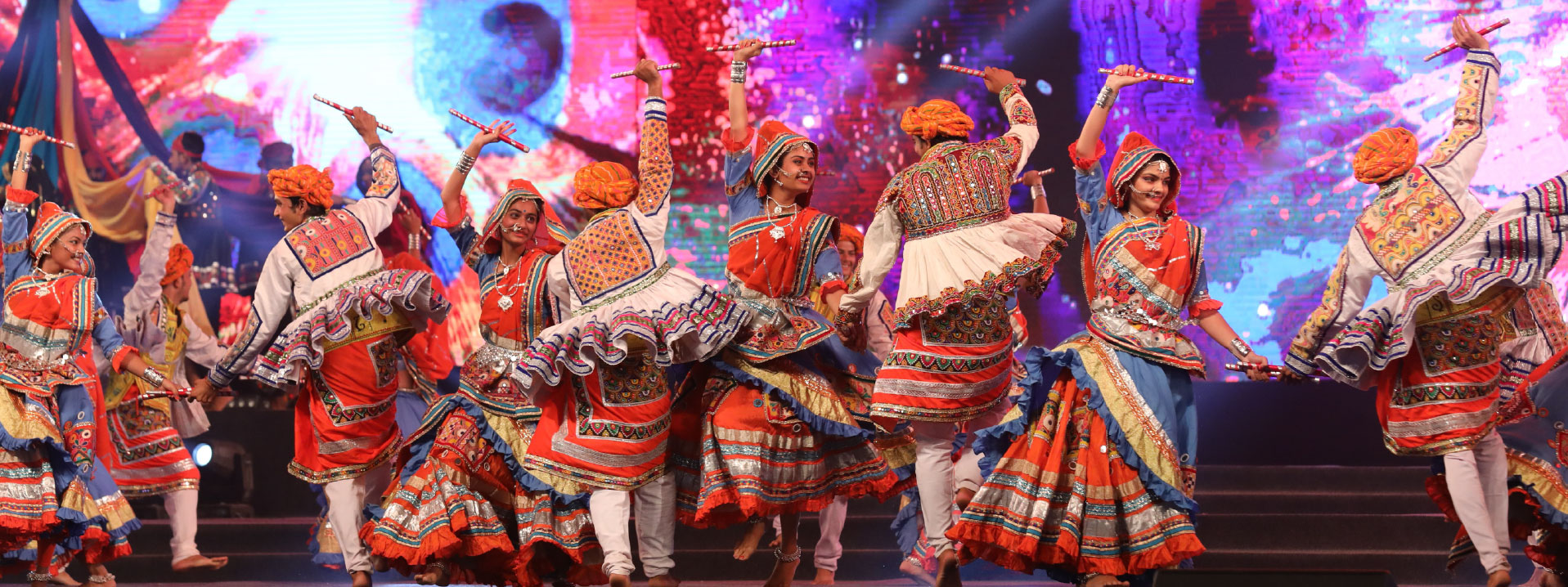
Fairs & FestivalsOf Gujarat
Festivals
Somnath Mahashivratri Parv
Shree Somnath Temple is recognized as the first Jyotirlinga of India. This temple is a center of faith and devotion, where Lord Shiva is worshiped in his Nataraja form. Thus, Shree Somnath pilgrimage holds a unique place in the spiritual and cultural landscape of the country. On the auspicious occasion of Mahashivratri, devotees from across the nation and abroad visit this sacred site. To enhance the spiritual experience of devotees and promote art, a unique initiative has been undertaken by organizing the "Somnath Mahashivratri Parv" during Mahashivratri.
- Somnath
- 14th to 15th February 2026
Rann Utsav
A plethora of varied hues, profusion of design, superfluity of culture, cornucopia of music and dance, all together in the arid lands of Kutch creates a mosaic of exquisiteness which reflects the identity and spirit of the region. Kutch, one of the most ecologically and ethnically diverse district of the state is a celebratory land of art, crafts, music, dance, people and nature.
- Kutch
- 23rd Nov 2025 to 23th Feb 2026
International Kite Festival
The festival of Uttarayan is a uniquely Gujarati phenomenon, when the skies over most cities of the state fill with kites from before dawn until well after dark. The festival marks the days in the Hindu calendar when winter begins turning to summer, known as Makar Sankranti or Uttarayan
- Ahmedabad
- 10th to 14th January 2026
Mandvi Beach Festival
The Mandvi Beach Festival is set to bring vibrant celebrations to one of Kutch’s most beloved coastal spots. Known for its calm seashore, golden sands and rich heritage, Mandvi offers the perfect backdrop for this lively event. Visitors can enjoy energetic stage performances, fun adventure zones, beach games, creative sand displays, stargazing, laser shows and a variety of food and craft stalls. With essential services and visitor-friendly arrangements in place, the festival aims to create a joyful and memorable experience for everyone who joins the festivities.
- Mandvi
- 21st to 31st December 2025
Vibrant Navratri Festival
Navratri, meaning 'nine nights', is one of the most popular and widely celebrated Hindu festivals in many parts of India. Gujarat, however, is the only state that erupts into a nine-night dance festival, perhaps the longest in the world. Each night, all over the state, villages and cities alike, people gather in open spaces to celebrate feminine divinity, referred to as Shakti
- Gujarat
- 22nd September 2025 to 1st October 2025
Megh Malhar Parv Saputara
Monsoon has begun and so have the festivities and fun. Gujarat Tourism, to attract tourists from all over the country, celebrates Saputara Monsoon Festival every monsoon; this year too, the monsoon festival has commenced in Saputara, amidst much enthusiasm and fervour. Saputara, Gujarat’s only hill station, turns into a bride during the festival. Here is all you should know about this monsoon festival.
- Saputara, Dang
- 26 July 2025 to 17 August 2025
Experience Gujarat's Vibrant Festivals
Experience Gujarat’s vibrant festivals that beautifully blend tradition, devotion, and celebration. From colorful fairs and folk performances to age-old rituals and local crafts, each festival reflects the state’s rich cultural heritage. These celebrations bring communities together, offering visitors an authentic glimpse into Gujarat’s timeless traditions and joyful spirit.
- Gujarat
- 2024-25 To 2028-29
Fairs
Mahashivratri Mela
The Mahashivratri Fair is celebrated during Maha Shivratri to mark the night dedicated to the worship of Lord Shiva, symbolising spiritual awakening, renunciation, and inner transformation. A unique feature of the fair is the gathering of Naga Sadhus, who represent extreme asceticism and detachment from worldly life. Their ritual bath at Mrigi Kund and participation in midnight worship are believed to purify both the place and the devotees, reinforcing the belief that divine energy is at its highest during this period.
- Junagadh
- 11th to 15th February 2026
Kavant Fair
Kavant has been a traditional gathering arena for the Rathva tribal community since time immemorial. The event brings the community together to spontaneously celebrate life and its joys. It is a sheer delight to witness Rathva men and women, dressed in their distinctive finery, gradually congregating to sing and dance, discuss marriages and relationships, and barter goods and services. The atmosphere builds into a grand crescendo of gaiety and high energy, drawing visitors into the mesmerizing world of Rathva culture.
- Chhota Udepur
- 7th March 2026
Madhavpur Fair
Madhavpur Fair is a vibrant cultural event celebrated annually in Madhavpur village of Porbandar District, Gujarat. The fair is a celebration of the marriage between Lord Krishna and Rukmani, which is said to have taken place at Madhavpur. The festival is an excellent opportunity for visitors to experience the rich cultural heritage of Gujarat and witness the traditional customs and rituals of the region.
- Gujarat
- 26th March 2026
Dang Darbar Fair
Dang Darbar honours the tradition of rulers and other heads of villages gathering for durbars during the British rule over India. The tradition continues today in the Dangs, a tribal dominated district, as many of the former Rajas and Naiks are still accorded status unlike the princely families whose title and privy purses were abolished.
- Dang
- March
Tarnetar Fair
Based on the legend of Draupadi's swayamvara, this fair is a celebration of ethnic Gujarat’s folk-dance, music, costumes and the arts, centered around young tribal men and women seeking marriage partners. But even for those not interested in finding a spouse, the romance and excitement in the air are captivating, and every year the fair seems only to grow in popularity, attracting visitors and tourists from Gujarat, elsewhere in India, and even abroad.
- Thangadh
- 26th August 2025 to 29th August 2025
Ambaji Bhadarvi Poonam Fair
Ambaji Temple, located in the Banaskantha district of Gujarat, is a revered Hindu pilgrimage destination. It holds immense importance as one of the 51 Shakti Peethas, believed to be the place where the heart of Goddess Sati fell. Every year, during the Gujarati calendar month of Bhadarvo, Ambaji hosts the Bhadarvi Poonam Fair.
- Ambaji
- 1 September to 7 September 2025

.jpg)
.jpg)
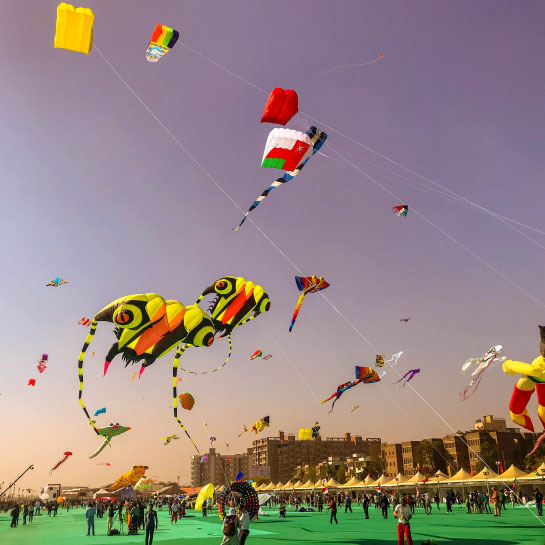
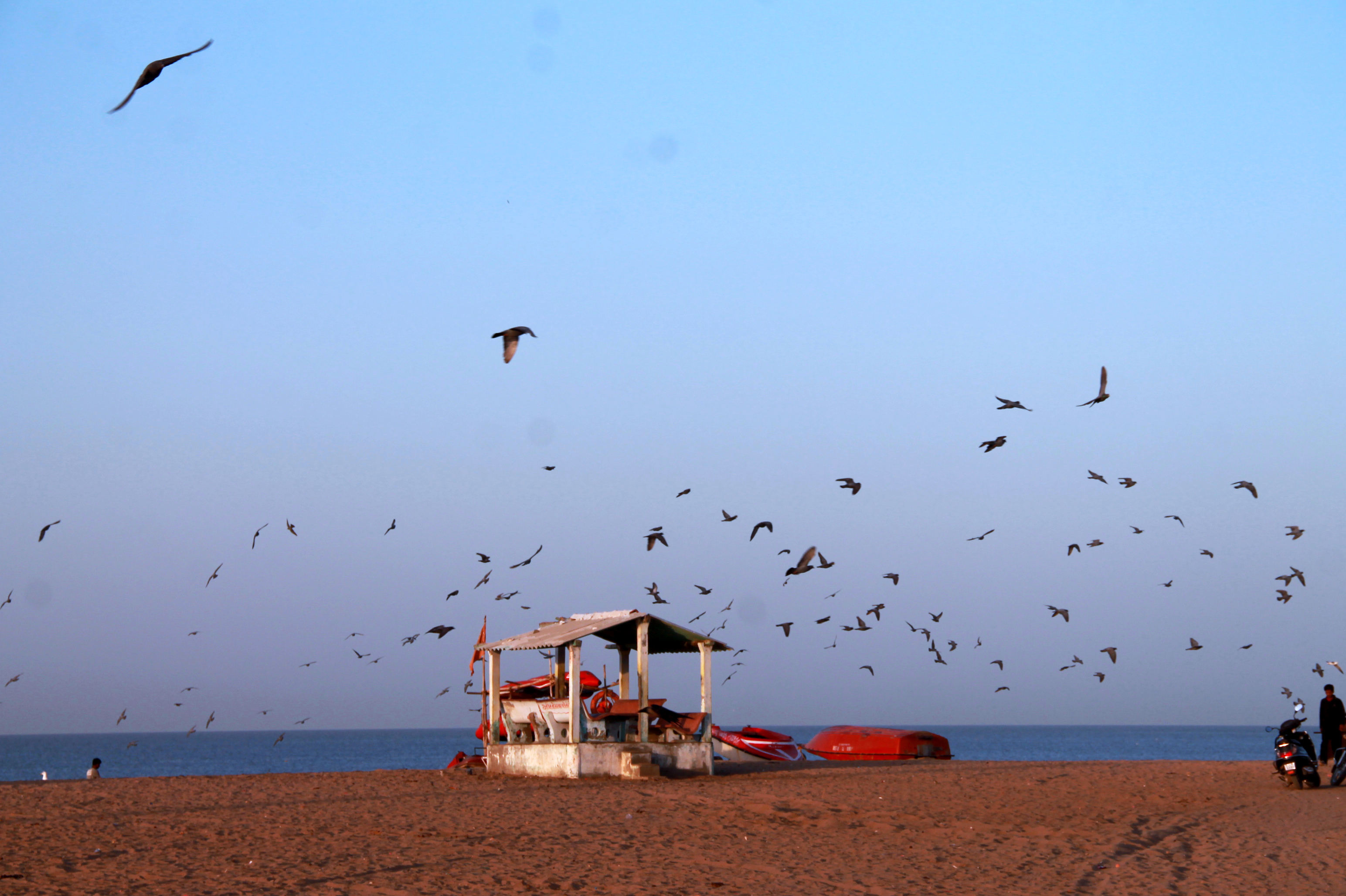
.jpg)
